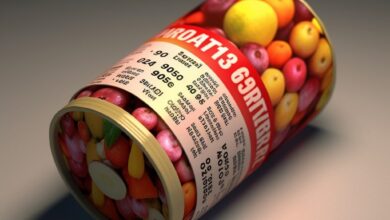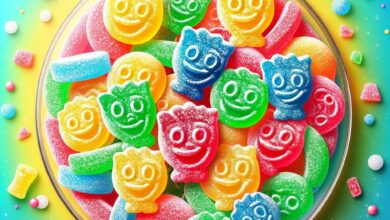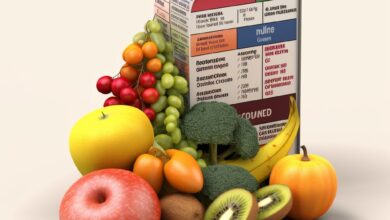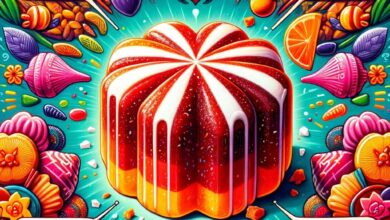Vitamin D Milk Nutrition Facts
Plunging into the world of Vitamin D Milk nutrition facts, we uncover an enlightening tale in each creamy sip of this popular beverage. By unmasking the complex blend of essential nutrients, calories, and titular vitamins, we'll embark on an exciting journey that challenges the status quo of your everyday dairy consumption.
Great value vitamin D milk nutrition facts can be fascinating for those interested in maintaining a healthy diet. This article will delve deep into the nutritional aspects of vitamin D milk, making it easier for you to make informed dietary decisions. We will explore facts about its caloric value and vitamin D content and compare it with other milk and milk substitutes. Our article will provide the most accurate data per the information displayed on our product packaging and materials. So, sit back, relax and get ready to become a milk connoisseur!
Vitamin D Whole Milk Nutrition Facts
Whole milk is often considered one of the most nutritious dairy products. The vitamin D whole milk nutrition facts reveal that it is a high-calorie drink packed with essential nutrients. In an average serving of whole milk, you can expect around 150 calories, 8 grams of protein, and 12 grams of carbohydrates. It also provides significant calcium, which is vital for bone health. Adding vitamin D to whole milk enhances the absorption of this calcium. A single cup serving contains about 100 IU of Vitamin D, roughly a quarter of the daily recommended intake for adults.
While it’s beneficial, many wonder how much sugar is in Vitamin D Milk. Typically, there are around 12 grams of naturally occurring sugar, in the form of lactose, in each cup. This sugar content is standard across milk types, including 2 percent Milk nutrition facts and Almond milk nutrition facts. So, don’t let the sugar content deter you, as it’s a natural part of milk’s nutritional profile.

Comparison: Vitamin D Milk vs. 2 Percent Milk
One might ask, “Vitamin D milk vs. 2 percent, which is healthier?” A cup of 1 cup of vitamin D Milk calories is around 150, while the same serving size of 2% milk contains about 120 calories. The fat content is also a key difference; whole milk contains about 8 grams of fat, whereas 2 percent milk contains around 5 grams. Vitamin D content remains the same in both types. So, whether you choose Vitamin D whole milk or 2 percent milk is a matter of personal preference and dietary needs.
For those leaning towards plant-based diets, Almond milk nutrition facts present a low-calorie alternative, with roughly 30-50 calories per cup. However, it falls short in protein content, less than 1 gram per cup, unlike the high protein content in whole and 2 percent milk.
Whole Milk Vitamin D Nutrition Facts in Detail
| Nutrient | Value per cup (8 oz) |
|---|---|
| Calories | 150 |
| Total Fat | 8g |
| Saturated Fat | 5g |
| Cholesterol | 24mg |
| Sodium | 100mg |
| Total Carbohydrate | 12g |
| Dietary Fiber | 0g |
| Sugars | 12g |
| Protein | 8g |
| Vitamin D | 3mcg (120 IU) |
Kroger Vitamin D Milk Nutrition Facts
Another popular brand of Vitamin D milk is Kroger. The Kroger vitamin D milk nutrition facts indicate that it is very similar to other vitamin D milk in terms of nutrient content. It contains 150 calories per cup, with 8 grams of protein and 12 grams of carbohydrates. Furthermore, each serving of Kroger Vitamin D milk gives you a generous dose of calcium and vitamin D3, ensuring healthy bones and teeth.
Again, how many carbohydrates are in a cup of milk? It’s typically 12 grams. And what about how much sugar is in 2 milk? It’s still around 12 grams, consistent across types. Product packaging and materials may contain additional nutritional information to understand the breakdown further.
F.A.Q.’s
How healthy is vitamin D milk?
When it comes to vitamin D milk nutrition, it's important to note that vitamin D milk is quite healthy. It's an excellent protein, calcium, and Vitamin D source, making it a great choice for balanced nutrition. However, if you're trying to limit caloric intake, you may want to consider lower-fat options or plant-based alternatives.
What vitamins are in vitamin D milk?
Vitamin D milk, naturally, contains Vitamin D, but that's not all. It's also rich in Vitamin A, essential for healthy vision and immune function. B vitamins are present, too, including riboflavin (B2) and B12, which are essential for energy production and nervous system health, respectively.
Is it good to drink vitamin D milk every day?
Daily drinking of vitamin D milk can be part of a balanced diet. However, remember that while milk is a nutritious beverage, it's also important to have a varied diet to ensure you get a broad spectrum of nutrients.
How much vitamin D IU is in milk?
A typical glass of fortified milk will provide about 100 IU of vitamin D. This is about a quarter of the recommended daily intake for most adults.
Conclusion
In conclusion, milk, especially Vitamin D fortified milk, is a highly nutritious beverage that can be an excellent part of a balanced diet. Vitamin D in milk vs. sunlight – while sunlight is the most natural source of Vitamin D, fortified milk can be a beneficial dietary source, especially in areas or periods with limited sunlight. Fortified milk is an excellent protein, calcium, and Vitamin D source, making it a great choice for nutrient-dense foods and beverages. Whether it’s whole milk, 2 percent milk, or plant-based alternatives like almond milk, all have their place in a varied and balanced diet.
Remember, while we strive to ensure accuracy, the nutritional or proper usage information on our website and in our materials is subject to change, so always check the label on the product packaging. If you have specific dietary requirements, always consult a healthcare provider. Your journey to understanding vitamin D milk nutrition facts can contribute significantly to a balanced and healthy diet. Here’s to your health and well-being!
Read also: A2 Milk Nutrition Facts






